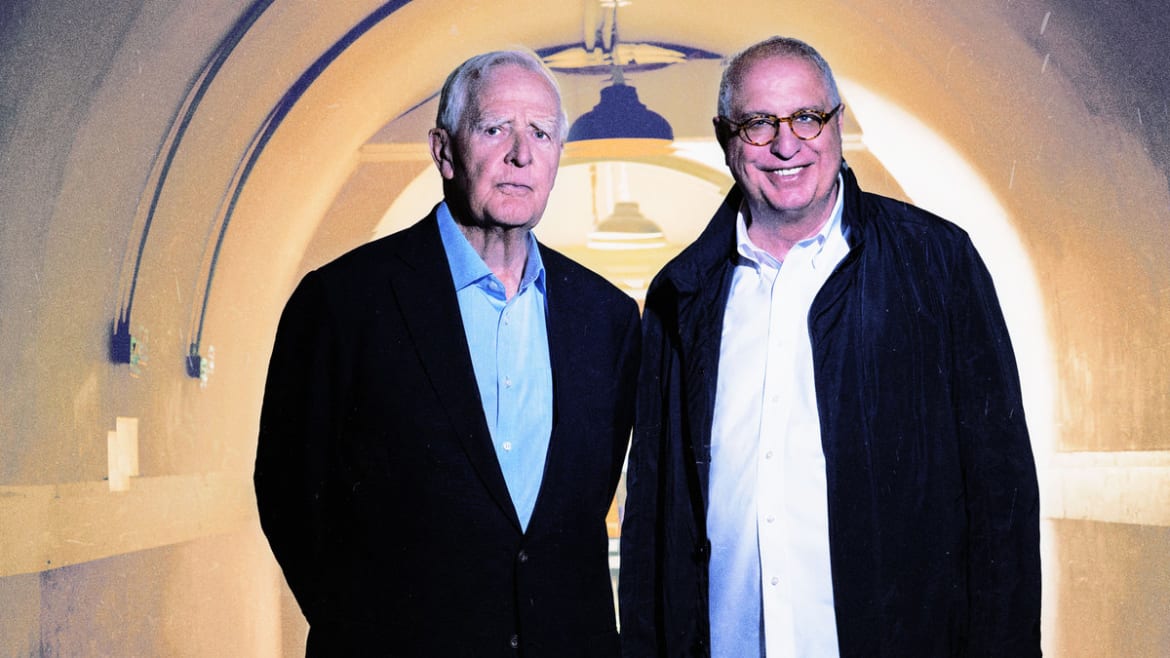Apple TV+
No one knew spies like David John Moore Cornwell, aka John le Carré, the acclaimed novelist whose tales of Cold War espionage were infused with authenticity and dripped with despair. The Spy Who Came in from the Cold, Tinker Tailor Soldier Spy, Smiley’s People, The Night Manager, and A Perfect Spy solidified his standing as the genre’s preeminent artist, operating as a one-man corrective to Ian Fleming (and his popular James Bond fantasies) by immersing readers in clandestine worlds where the shadows were so thick you could practically choke on them. He was the master of duplicity, and in Errol Morris’ The Pigeon Tunnel—energized by the last on-camera interview with the author, who passed away in 2020 at the age of 89—he pries into and lays bare his life and career, along the way tracing the oh-so-thin line separating fiction and reality, truth and lies, and confession and cross-examination.
Le Carré was born in 1931 to a mother who abandoned him at five and a father, Ronald“Ronnie” Cornwell, whom his son describes as a “confidence trickster” who never had a dime and loved the thrill of the scam. As he explains in The Pigeon Tunnel (currently screening at the New York Film Festival, and premiering in theaters and on Apple TV+ on Oct. 20), his was an exciting and romantic adolescence spent as a member of his dad’s conmen troupe, and it continued once he was sent to a boarding school where he did his best to fit in but nonetheless felt like an outsider. Whether participating in Ronnie’s ruses (which kept them financially afloat) or hobnobbing with upper-crust preppies, le Carré was working literally and/or figuratively undercover, and the particular nature of his upbringing—abandoned by his mom; raised in the UK’s elite educational system; and a good boy who was additionally bad—made him a prime candidate for the country’s secret service, which soon recruited him.
The Pigeon Tunnel begins with le Carré remarking that any interview is a “performance art” interrogation in which the interrogator is also in the crosshairs, and that during his time in the army, his own interrogations hinged on “establishing…dependence on the interrogator.” Though this suggests a dual inquiry to come, Morris is (per tradition) audibly heard questioning his subject throughout the film but does not come under great scrutiny. Instead, the focus is squarely on le Carré. Following two rather unadventurous stints as an enigmatic operative for Her Majesty, he chose to fill in the blanks of his service with make-believe yarns about the vocation. Debuting in 1963, The Spy Who Came in from the Cold couldn’t have arrived at a better time, defining and encapsulating the desolate (if not outright fatalistic) mood of the geopolitical era, and turning le Carré into an instant sensation—a status he’d maintain for decades courtesy of subsequent best-sellers about cat-and-mouse spy games.

